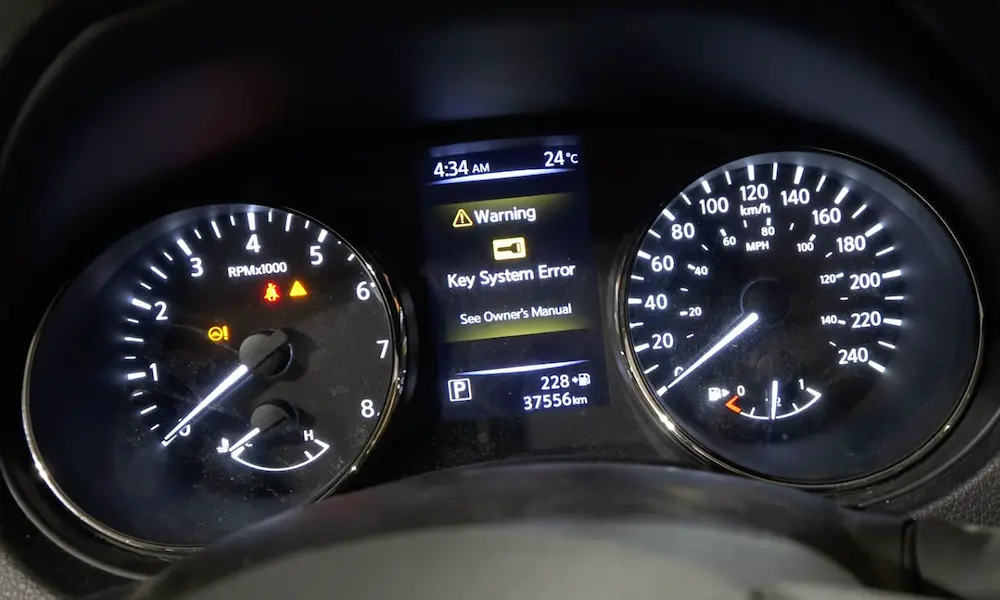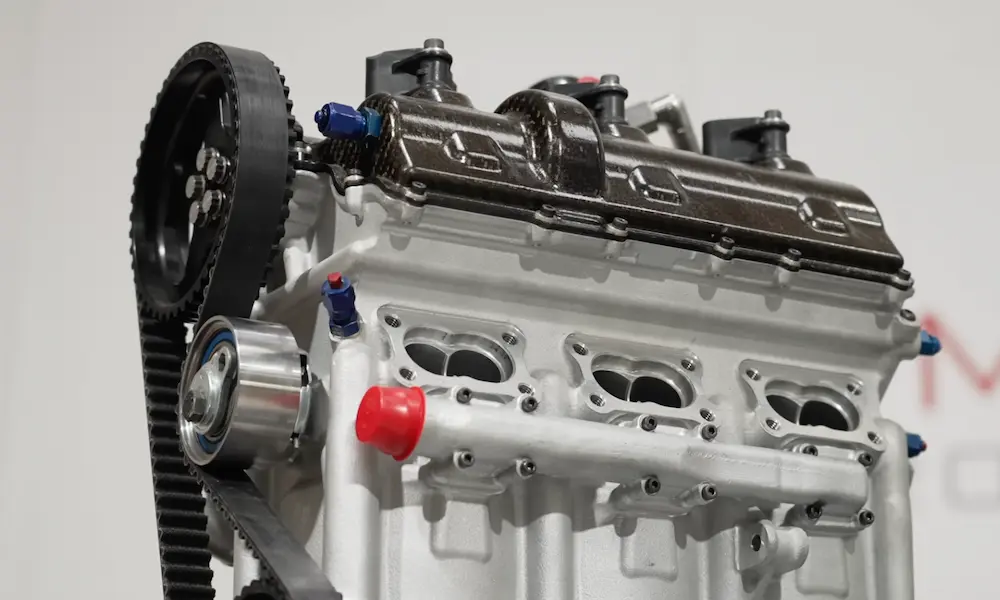When you drive a Nissan Frontier, you might face some transmission problems that other owners have also reported. Whether it’s jerky shifting or premature downshifts, these issues can be frustrating but may be fixable. Understanding these common problems could help you identify and address them sooner. Keep reading to discover valuable insights and tips that might just solve the transmission issues you’re experiencing with your Nissan Frontier.
Common Symptoms of Transmission Problems
Understanding the symptoms of transmission problems in your Nissan Frontier can help you address issues early. Taking action can prevent more severe and costly repairs. Keep an eye out for these key symptoms.
Early Signs of Transmission Troubles
You might notice early signs if your Nissan Frontier is facing transmission troubles. A common symptom is unexpected noises. You could hear whining, buzzing, or clunking sounds coming from under the hood.
Another early sign is a delay in response when you shift the gear. Normally, your vehicle should shift smoothly. If it hesitates when you move from park to drive or reverse, it could indicate a problem.
It’s also wise to pay attention to any warning lights on your dashboard.
Shifting Issues and Irregularities
One of the clearest indicators of transmission problems is difficulty in shifting gears. Your Nissan Frontier may struggle with gear changes or refuse to shift altogether.
Gears might slip out of place while you’re driving, causing a jolting sensation. You may also face unexpected gear shifts, which could feel like your vehicle is losing power.
These problems often point to issues within the transmission system. Checking for shifting issues and irregularities early can save you from more serious troubles down the line.
Transmission Fluid Leakage
Transmission fluid is essential for smooth gear operation and lubrication. If you notice fluid leaks underneath your Nissan Frontier, it could be a sign of trouble.
Typically, transmission fluid is red and has a sweet smell. A leak might mean that seals or gaskets are failing, leading to inadequate lubrication.
Without enough fluid, the transmission could overheat and fail. It’s recommended to regularly inspect your transmission fluid level and condition. Look for any changes in color or scent to catch issues early.
Specific Nissan Frontier Transmission Concerns
When it comes to transmission issues, the Nissan Frontier has had its fair share. Whether it’s the older RE5R05A, the newer 2022 models, or the dramatic-sounding “Strawberry Milkshake of Death,” understanding these problems can help you manage your truck more effectively.
RE5R05A Transmission Issues
The RE5R05A transmission is known for having some problems, especially in older Frontiers. This automatic transmission unit can have trouble with shifts that are not smooth, often described as hard shifting. As the truck gets older, these issues become more noticeable.
Owners have also reported issues with overheating, which can lead to more serious problems if not addressed. Regular maintenance and fluid checks can help prevent some of these headaches. If you’re experiencing these issues, it might be worth consulting with a professional.
2022 Model-Specific Challenges
The 2022 Nissan Frontier has introduced some new challenges. Some drivers have reported that the 9-speed automatic transmission can have a noticeable clunk. While this might seem alarming, it has been described as normal by some service techs.
If you notice unusual noises or shifts that don’t feel right, it’s wise to have your vehicle checked. Understanding what to expect from your truck can help you decide if touching base with a mechanic is needed. Fixing problems early can save you bigger issues later on.
The ‘Strawberry Milkshake of Death’
This oddly named issue happens when engine coolant leaks into the transmission fluid, creating a frothy mixture. It’s associated with some older models of the Frontier, especially those affected by radiator failure.
When this occurs, drivers might notice slipping gears or complete failure. This can be an expensive fix if not addressed promptly. If you suspect this issue, it’s important to get your truck looked at quickly. Replacing faulty radiators and sealing leaks can help prevent this from happening in the first place.
Repair and Maintenance Strategies
Keeping your Nissan Frontier’s transmission in good shape is crucial to avoid costly repairs and maintain smooth driving. Regular maintenance and potential upgrades can enhance your vehicle’s performance and longevity.
Transmission Maintenance Tips
Regular checks of the transmission fluid are essential. Low or dirty fluid can lead to serious issues like slipping or overheating. Park your car on a flat surface, use the parking brake, and check the fluid using the dipstick. Refer to your car manual for the correct fluid type if you need a refill.
Inspect your vehicle for leaks, especially if you notice a strange smell or experience unexpected shifts. Checking for leaks can help prevent major damage. Be aware of any Technical Service Bulletins related to the transmission; they may offer solutions for recurring issues. Routine maintenance, like filter and gasket changes, can keep your transmission running smoothly and extend its life.
Upgrading the Transmission System
Upgrading the transmission can enhance performance and increase your Frontier’s durability. Consider installing a transmission cooler, especially if you tow frequently. This addition helps prevent overheating by dissipating excess heat efficiently, which can otherwise cause damage over time.
Another option might be a new transmission. If persistent issues occur despite maintenance, it might be time. Consult with a mechanic to evaluate if this is the right choice, considering the vehicle’s age and condition. Stay updated with the latest Technical Service Bulletins, as they might address known issues and offer improvements. These upgrades can ensure that you experience fewer problems and enjoy a smoother ride.
Preventive Measures and Performance
Maintaining the transmission of your Nissan Frontier involves regular service, optimizing performance, and maximizing its lifespan. These efforts are crucial for avoiding problems and ensuring reliable vehicle operation.
Importance of Regular Service
Regular service is vital for keeping your transmission running smoothly. You should check transmission fluid levels regularly and replace it according to your vehicle’s maintenance schedule. Fluid ensures proper lubrication and cooling of the transmission components. Old or dirty fluid can lead to overheating and damage.
Pay attention to any Technical Service Bulletins (TSBs) related to your vehicle, as they provide important updates or fixes for potential issues. Staying informed about these bulletins can help you address problems early and avoid costly repairs down the road. Regular inspections, including checking for line pressure issues, can also help catch problems early.
Performance Enhancement Tips
Enhancing the performance of your Nissan Frontier transmission can be straightforward with simple adjustments. Keeping your transmission fluid clean and at the right level is a basic tip but extremely effective. Clean fluid reduces friction and prevents overheating.
Avoiding excessive towing or driving in harsh conditions can reduce strain on the transmission. If you regularly engage in these activities, consider an external transmission cooler to help manage the heat more effectively. Stay aware of your truck’s limits to avoid putting unnecessary stress on the system.
If you enjoy technical details, understanding line pressure can also be beneficial. Proper line pressure helps with smooth gear shifts and overall efficiency of the transmission system.
Maximizing the Lifespan of Your Nissan Frontier Transmission
To maximize the lifespan of your transmission, focus on preventive maintenance and attentive care. Regular fluid changes and using the correct type of transmission fluid are crucial. Pay attention to your truck’s behavior and listen for any unusual noises, which could indicate potential problems.
Following Technical Service Bulletins and performing routine inspections can help detect issues before they become significant. Ensure that all components are functioning well by having professionals check everything from line pressure to other essential parts. Avoid aggressive driving and always allow your engine to warm up before driving in cold weather. This careful approach ensures longevity and reliable performance.












